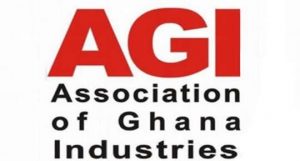Economist and Director at the Institute of Statistical, Social and Economic Research (ISSER), Prof. Peter Quartey has cautioned against a return to the dark days of the banking industry in Ghana.
According to him, the new board of the Bank of Ghana should among other things continuously assess the soundness of the industry to ensure any issues are effectively dealt with.
Ghana’s banking sector reforms, led to a reduction in the number of banks from 34 to 23, dating back to 2017, when the BoG embarked on a comprehensive reform agenda, with the objective of cleaning up the banking industry.
Speaking to Citi Business News on the future of the industry, Professor Peter Quartey, highlighted the importance of improved corporate governance going forward.
“We have in the past seen some undesirable activities or actions that have caused some banks to collapse. We don’t want to go back to the dark days. So I would expect the new Bank of Ghana board, to also focus on ensuring that there’s soundness within the banking system. And that relates to my next point, good corporate governance. I think the Bank of Ghana has come with all the directives and some documents to guide that. That should be the focus.”
“We need good corporate governance practices ensuring that yes people who deserve to be on boards are there and people who are qualified to be there, are there, and also that banks ensure that they employ the right people. The right processes should also be put in place to ensure that there is good corporate governance. You don’t bring your friends, your cronies, your relatives as board members when perhaps they are not qualified. And I think the Bank of Ghana is doing a lot in that respect. So I expect them to deepen that activity,” he added.
Prof. Quartey urges new BoG board to push for a reduction in loan default rates
Prof. Peter Quartey also urged the new board of the Bank of Ghana to among other things strengthen the Central Bank’s enforcement and regulatory mechanisms.
While congratulating members of the new BoG board, Professor Peter Quartey, stated that steps must be taken to ensure a reduction in the high loan default rate to encourage banks to lower their interest rates.
“The focus of the new board should be on ensuring that the Bank of Ghana strengthens its regulatory and enforcement mechanism. If that is done, certainly the loan default rates will drop which will impact the final cost of funds of Banks. We find that the loan default rate is quite high, an average of 19 % to 21 %.”
“That is the risk element which has to be factored into the cost of the loan. So if the Central Bank can enforce its regulatory requirements and ensure that we reduce this high default rate, then banks can reduce their operational costs and be able to reduce interest rates,” he added.






